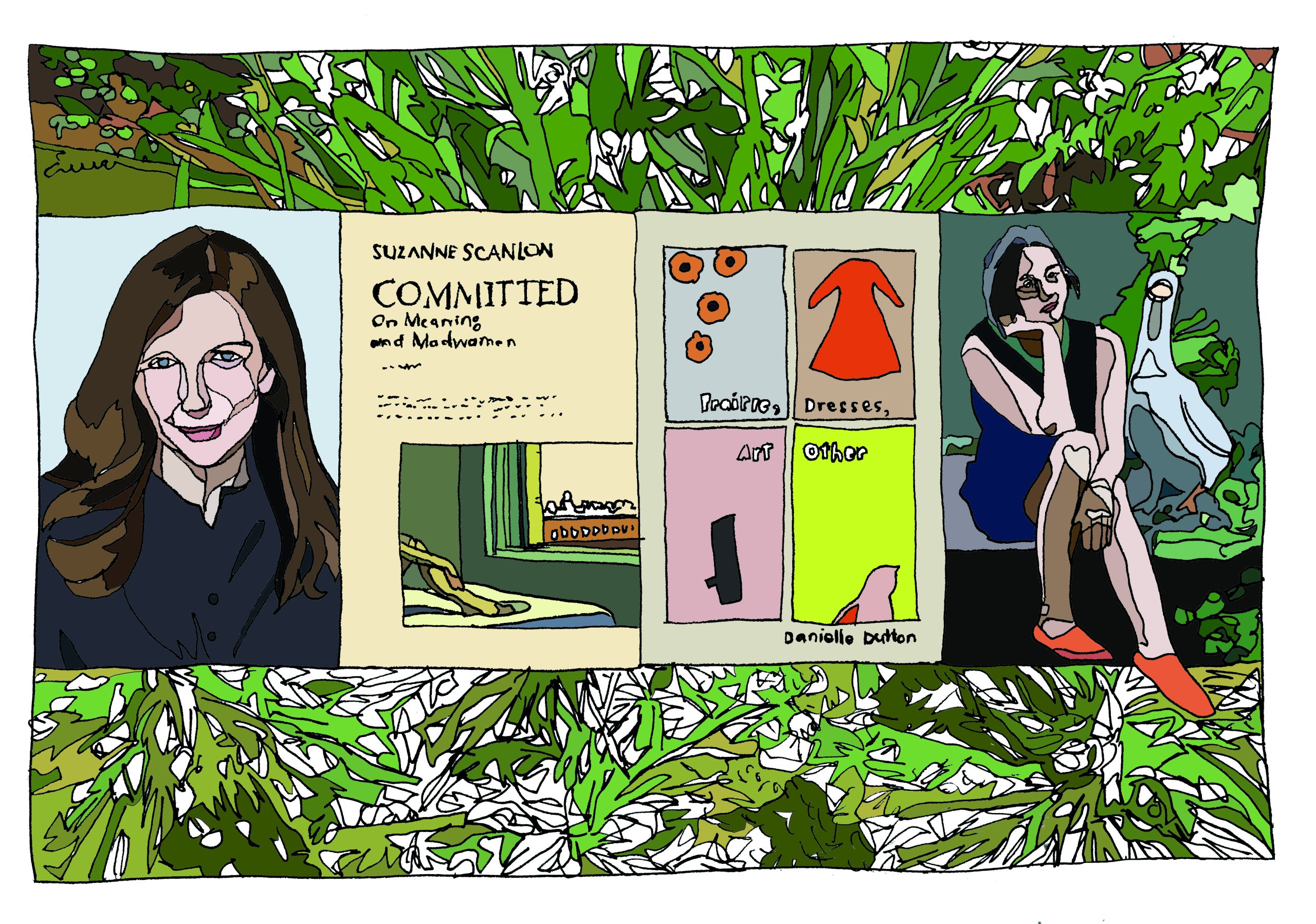Lit Mags
Kafka Has Nothing on the New York Unemployment Office
"Initial Reemployment Services and Eligibility Assessment," a short story by Nicole Miller

Kafka Has Nothing on the New York Unemployment Office
Initial Reemployment Services and Eligibility Assessment
At the unemployment office, we all wear heavy coats or grip them to our chests as though we’ve been instructed not to lose them. I got an email, I explain to the security guard, referencing a letter I never received. The appointment is mandatory, I tell him. The place, painted a sick green, makes me think of a hospital ward—the uniformed guards awaiting a sign like orderlies attending the newly recovered or the ones who will not be discharged. Mandatory? asks the guard.
Down the hall, past the bulletin board, a woman sits at a low desk behind a high counter. People wait in line to hand her their forms, which she assaults with a rubber stamp. Whatever else happens in this building, I believe, she is the one to authorize it. The woman gives me a form to fill out. I reach for a pen and find a tear in the lining of my coat pocket, like a worry I’d forgotten was there.
In the waiting room is a woman in a knit cap, cradling a clipboard. She wants to know whether we have the same form. Supplemental Questionnaire, I read. Additional Information in order to determine Program Eligibility. There’s a list of questions and a series of boxes: Yes, No. Check all that apply. TANF, SNAP, GA, RCA, SSI, SSDI, exhausting TANF within two years. The answers, the form says, are voluntary.
The woman has never heard of TANF, she tells me. Her whole arm disappears inside her purse while she looks for a pen. She was supposed to come last week, but she couldn’t, she says, because of her cat. She believes he heard her voice at the end, because she saw him move his mouth. Just slightly, she says. You know hearing is the last thing to go?
Someone enters the waiting room and tells us to follow her. We’re to finish filling out the forms at a table. There are others seated in this room and the sound of sniffling. There are more questions on the back of the form. Are you a Displaced Homemaker? Do you lack basic skills? I put down all shifts.
The woman returns with a man, who picks up our papers and hands out packets. She tells us we’re here because we’ve been randomly selected. There’s not a specific reason for it, she says.
She wants us to know about the resources they provide, such as free workshops for dealing with job loss. I try to think whether the term applies, like the loss of a pen from a torn coat pocket or the woman’s cat—lost!—or a child. I write down less than eleven or no larger than sixteen but I don’t catch what this refers to. Then the woman describes a program called SEAP.
In fact, I was fired. Someone from HR took me into a room and closed the door. The woman adopted a mournful expression as she talked about becoming a leaner, more efficient organization. This was a place that employed dozens, maybe hundreds of people, and I was flattered to think I’d been singled out.
Your New York number, the woman says now, which is important, I guess. She’s going to show us how to fill out the next form and the first thing she explains is the date. There’s a place to list your activities each week. You have to do three. A man on the other side of the table, drumming the air with a pencil and sniffling, says, This is every week? Every little question, says the woman, is in the handbook. Will the handbook be provided? wonders the woman in the knit cap.
These city agencies are all the same. The rooms hum with a hidden logic, the scrubbed floors and drop-ceilings only the visible signs of a far-reaching purpose. You stand in line or you sit in sticky vinyl seats, waiting for someone to call your name, waiting for someone else to find you in the system—the system, its distant, gleaming points of data like a gnostic cosmogony. I have a talent for this sort of waiting.
Years ago, I remember, I took some paperwork to the courthouse, where I went through a metal detector and up to the sixth floor, through one or maybe two intake windows. The trip took all day and I had to pay for parking, and I don’t remember now what it was all for, but I do remember the amount: two hundred eighty-three dollars. I wonder whether this is what it’s like to swoon into the arms of God.
When my name is called, I’m led to a cubicle occupied by a woman wearing a lavender shirt, which matches her lumbar pillow. Her computer monitor is propped up by a ream of paper, like her keyboard, which rests on a pack of brochures. She wonders whether I have any digital experience. What I want to know is what counts as experience. Swiping? Refreshing the feed? The long slide, at the end of the day, into sudden intimacies with strangers, swallowing their plausible fictions, offering whatever they’re looking for, broadly, online? I think of a number and say, Seven years.
There are other cubicles in this room and others with coats on their laps answering questions about how far they’re willing to travel for work. I see the woman in the knit cap talking to someone while she goes through her purse. I recognize the gesture of digging and digging for something that won’t put an end to the feeling.
She’s found something for me, says the woman in lavender. The job summary includes data metrics and producing regular traffic reports. A clear and likely internal candidate has already been identified, it says.
The woman prints out another form for me to sign. There are two of these forms—they’re the same; sign twice—that list Work Search Preparation Activities and Work Search Activities, along with Additional Next Steps. Do I have to apply for this job? I ask. If you do three things each week, she says, you’re good.
Now the woman in the knit cap across the room is standing to leave. I think of what she said—how hearing persists beyond consciousness even—and wonder what her voice meant to the dying cat. Dull comfort, maybe. Proof of endurance, like the beating of your own heart. A line dropped below the surface of the animal’s undoing, down through a narrow channel to stir an ancient, inner sea.
The woman hands me back the form. Where I’ve written fifteen, she wants me to put down twenty-five. I tell her that twenty-five isn’t true, but she says on the paperwork you have to comply.
Is it true, I ask, that I was randomly selected to come here today? What about the people who weren’t selected? The woman in lavender can’t say. Many will be chosen, she says.
I remember a room where I waited once at a place called The Healing Project. The walls curved like the shell of an egg, and the man at the front wore white. He began by talking about taking a bath. He told us to put our hand on the center of our chest and inquired, What is your heart telling you? Then we drew large circles in the air with our arms. The arms are an extension of the heart, he said. I pictured my arms beating the air like wings that hinged from my chest. Thirty more seconds, he said. By then my arms were trembling and my shoulders felt like stone slabs. Ask your heart, the man said. I beat my arms in the air with the others seated cross-legged on the floor. I asked my heart, and what it told me was about tremendous loss.








